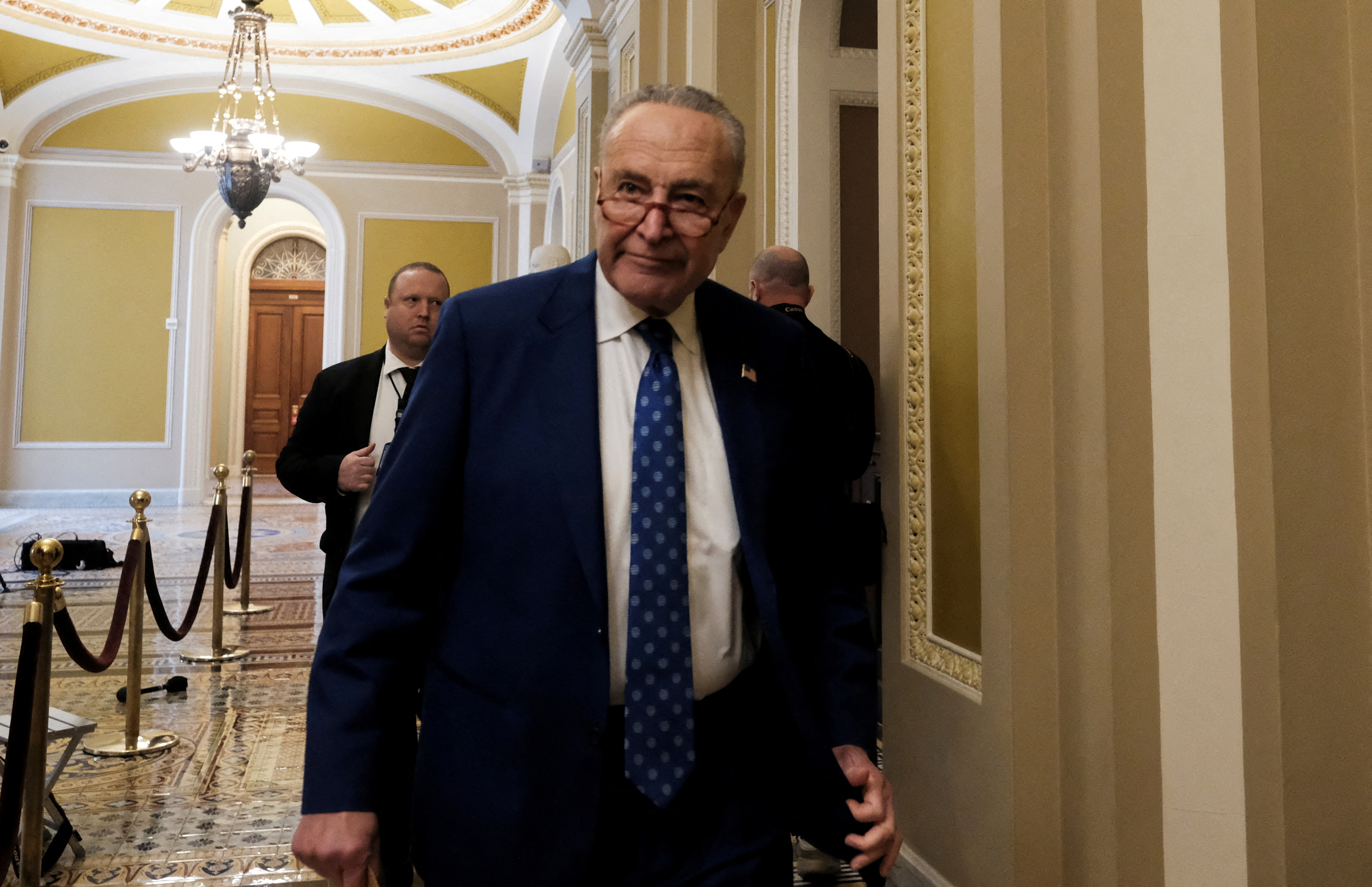
The U.S. Senate needs to move quickly to pass a weeklong stopgap funding bill ahead of a midnight Friday deadline to avoid a partial government shutdown, Senate Majority Leader Chuck Schumer said on Thursday.
The bill, known as a continuing resolution, or CR, is intended to give lawmakers more time to pass a sweeping, expected $1.7 trillion measure to keep federal agencies operating through the fiscal year ending Sept. 30, 2023.
Passage of the measure, which senior Senate Democrats and Republicans back, would forestall the risk of a year-end partial government shutdown.
“We should move quickly to avert a shutdown today, without any unwelcome brouhaha that has caused shutdowns in years past,” Schumer said on the Senate floor. “Both sides are going to spend the day working on an agreement to get the weeklong CR done.”
The House of Representatives passed the stopgap legislation on Wednesday.
Congressional negotiators announced earlier this week a framework for the full-year “omnibus” package, but did not provide details on the amount they had agreed on or what was included in it.
It is expected to tally about $1.7 trillion and include aid for Ukraine’s fight against Russian forces and a bill reforming the way Congress certifies U.S. presidential elections.
While top Senate Republicans signed onto that deal, House Republicans rejected it, wanting negotiations delayed until after they assume the House majority on Jan. 3, which would give them more leverage to cut domestic spending.
The last time Democrats and Republicans allowed government funding to lapse, a record-long, 35-day partial shutdown ensued, spanning from Dec. 22, 2018, until Jan. 25, 2019. The main stumbling block was over then-President Donald Trump’s demand for large new investments in a U.S.-Mexico border wall that many saw as ineffective and wasteful.

